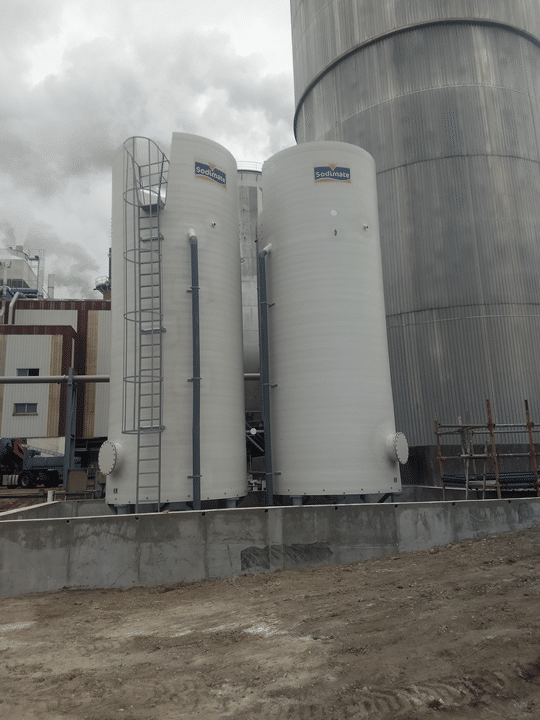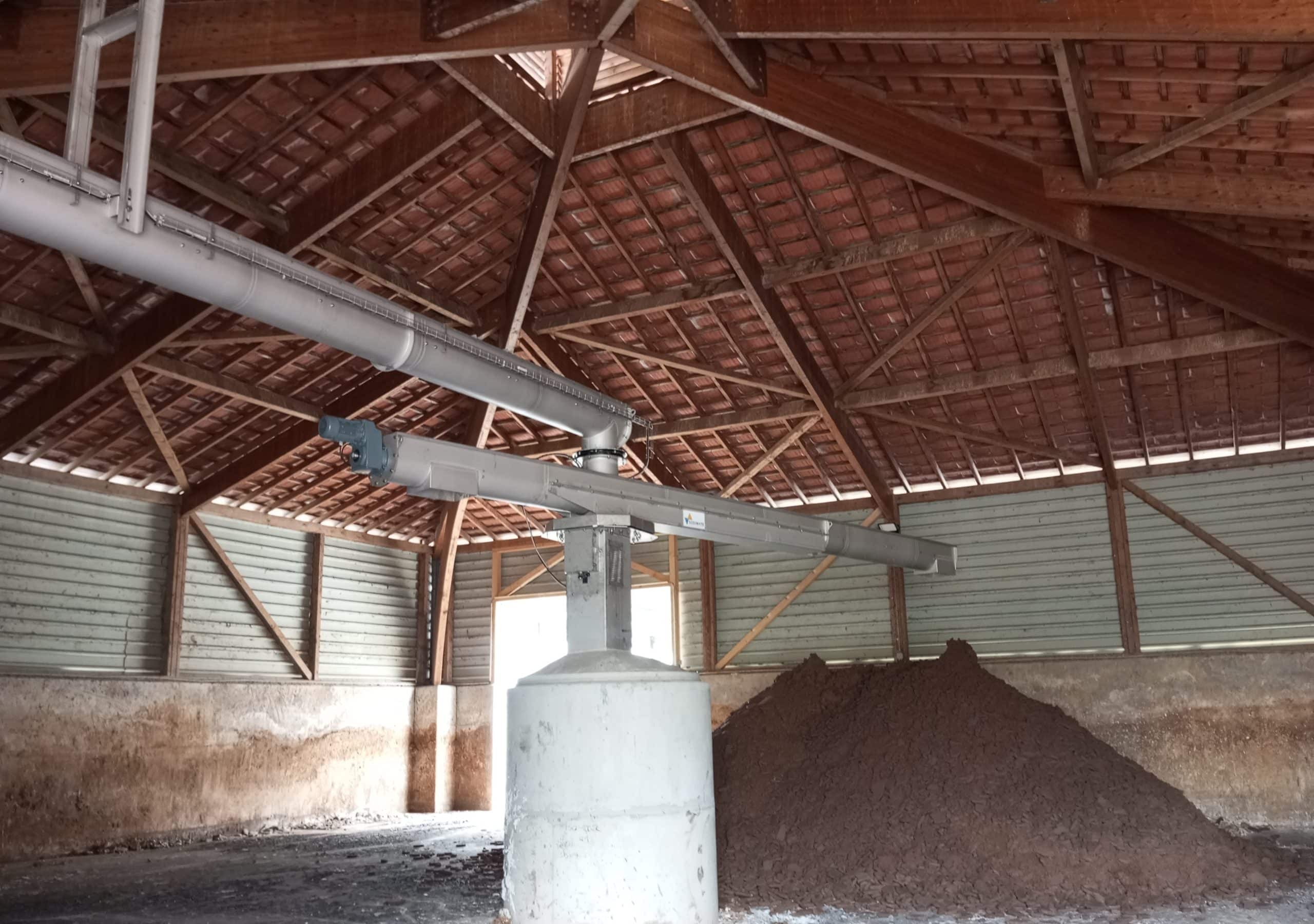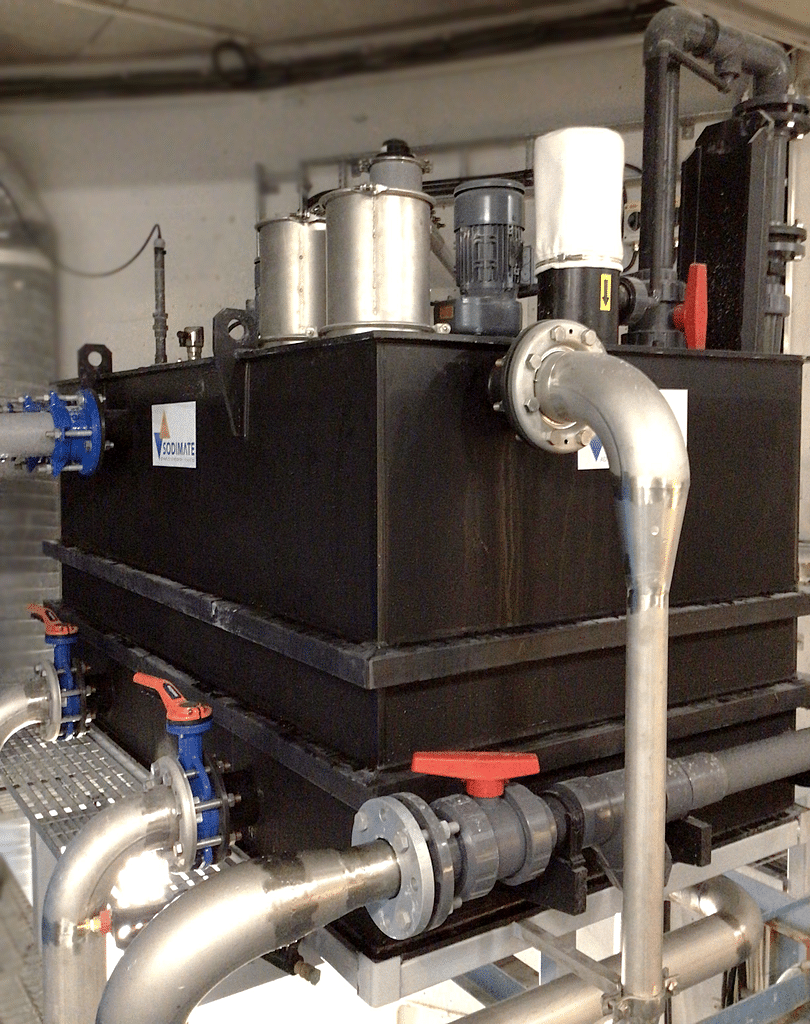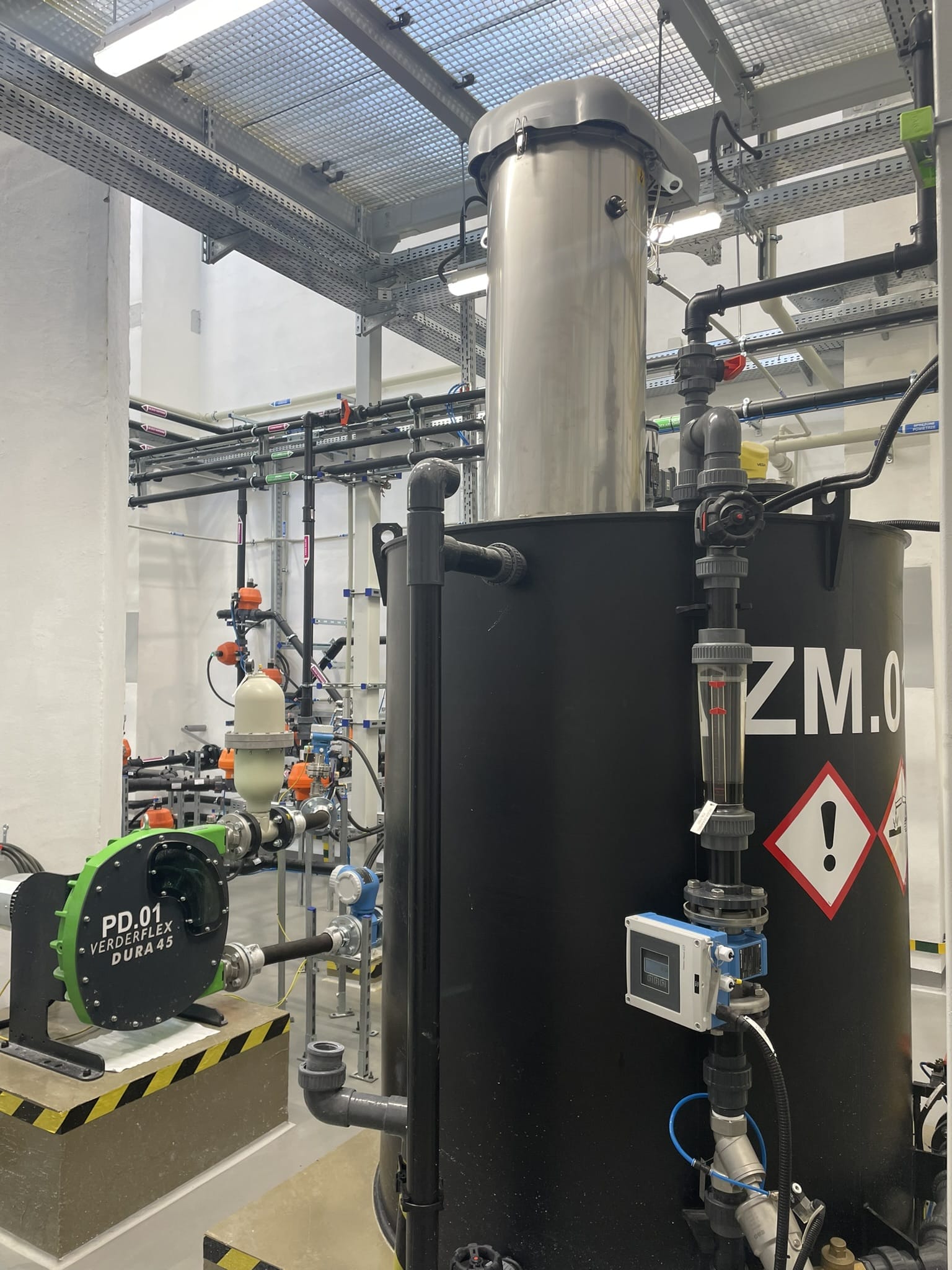The Rayonier A.M. plant in Tartas, in the heart of the Landes Forest, is the only one of its kind in Europe and produces speciality cellulose. Every day, this biorefinery transforms waste from sawmills using Landes pine, and discharges acidic effluents that must be neutralised before being sent to a lagoon. For this, Rayonier uses a ready-to-use, highly reactive milk of lime, developed and supplied by Lhoist. This milk of lime is stored, dosed and injected using an installation designed and built by Sodimate. Installed in 2022, this device, the result of an original partnership between Sodimate and Lhoist, is now giving full satisfaction to the customer.
“Our Tartas site is not a pulp mill but a biorefinery,” says Anne Furstoss, supply chain manager at Rayonier, a major global player in cellulose chemistry. In fact, this unit located in the Landes forest and belonging to Rayonier Advanced Materials since 2016 processes thousands of tons of maritime pine every year to extract various products. These include high-purity cellulose, a speciality that this plant is the only one to produce in Europe. Depending on the length of the chains and the degree of purity, these celluloses are used, for example, in the construction industry (viscosity factors for coatings or paints), the food industry (texture agents) or the pharmaceutical industry (excipients). “Celluloses are our main product, but we also use all our raw material – wood – to produce lignosulphonates, soaps or soda liquor,” adds Anne Furstoss. The residual biomass is also used to produce, and sell, green electricity. Extracting all this from the wood generates acidic and basic effluents, depending on the stage of the process. Rayonier called on Lhoist – and indirectly on Sodimate – to neutralize the acidic effluents with milk of lime.
A changing economic context
The acidic effluent from Tartas is directed to an aerated lagoon. Their pH must therefore first be neutralised – brought down to 6.5-7 – to preserve the ecological balance and the purification function of the lagoon. Rayonier traditionally does this by adding caustic soda. The plant also uses this product as a reagent at various stages of the process, and therefore has storage, dosing and injection systems. The teams know how to handle this dangerous product. Nevertheless, in 2013 the Tartas plant carried out tests to replace soda ash with Neutralac® SLS45 milk of lime at 600 g/l (or 45% dry matter) supplied by the Belgian company Lhoist. “The neutralisation kinetics, which are very rapid, are similar to those of soda ash. These tests were technically positive but were not economically relevant at the time because soda ash was not expensive,” recalls Nicolas du Pontavice, Sales and Development Manager (Environment and Chemicals Markets) at Lhoist. In 2018, the sharp increase in the price of soda changed the situation and Rayonier approached Lhoist again. Trials were soon resumed with a pilot unit.
An adapted contract – lime milk
The results, both technical and economic, having proved conclusive, Rayonier and Lhoist then signed an adapted commercial contract in December 2020. The Lhoist company would supply the milk of lime … and, made available to the Rayonier company a storage, dosing and injection installation for a fee, with an appropriate payment schedule. This arrangement avoided the need for Rayonier to make an initial investment. As a pure supplier of lime and minerals, Lhoist then turned to Sodimate, a specialist in the handling of lime in powder form or in liquid solutions such as “milk of lime”, to design and manufacture the device.
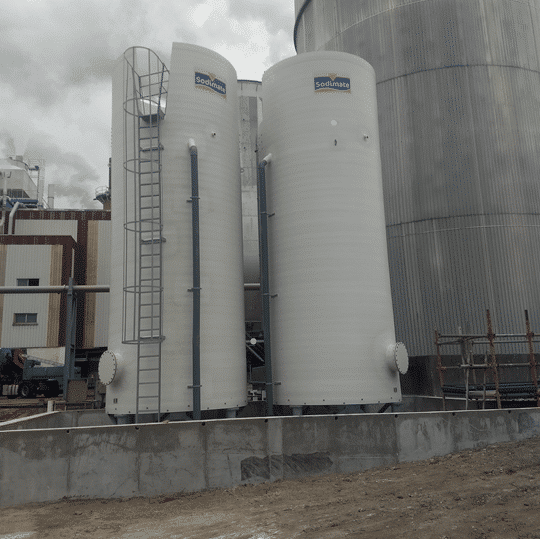
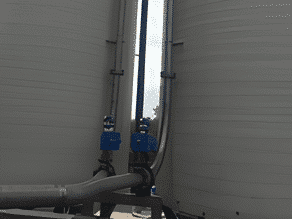
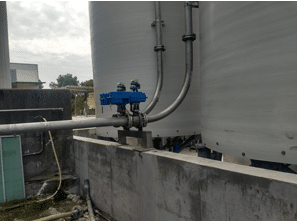
A tailor-made solution – storage and dosing
From then on, everything happened very quickly. A working group including Lhoist’s customer technical support services (CTS), Rayonier’s design office and representatives of Sodimate defined a set of specifications specific to the consumption of milk of lime, the characteristics of the process and the constraints of the Tartas site. The installation will have to include two storage tanks connected to each other, with an agitation, transfer and dosing system. A remote monitoring of the storage level by VMI (Vendor Managed Inventory) is also planned to control the supply of milk of lime and logistics (to know the levels without going to see the tank)
On behalf of Lhoist, Sodimate then designed -and built- a set including two twin 40 m3 tanks -internal dimensions: diameter 3 m, height 8.40 m- built in ORTHOPHTLALIC glass resin laminate, a material suitable for milk of lime. They rest on steel frames that will be spiked on the ground. Due to the low solubility of lime, the milk of lime at such a high concentration must be constantly stirred to avoid deposits and maintain a constant quality. Each Sodimate tank is therefore equipped with a 304L stainless steel vertical agitator comprising two 1400 mm diameter three-blade propellers arranged at different heights and a 1200 mm diameter two-blade bottom turbine driven by a 5.5 kw geared motor. In addition, there are anti-vortex blades to optimise the mixing efficiency. The tanks are fed by a stainless steel discharge pipe equipped with electro-pneumatic gate valves and emptied by gate valves with handwheels. All the necessary tapping and safety equipment is of course present.
The Sodimate installation is designed to deliver five to twenty m3 of milk of lime per day, continuously. For the dosing of the milk of lime, Sodimate has installed two peristaltic dosing pumps, each of which can independently draw from either tank.
The flow rate is continuously adjusted according to the pH. Soda ash and milk of lime complement each other to neutralise according to a degree of substitution validated upstream by the Environment Department.
A win-win situation
In September 2021, the Sodimate teams delivered the installation. In two days, the assembly was completed and the Rayonier teams were trained in the use of their new tool, which started in February 2022. Since then, a Lhoist lorry arrives daily in Tartas to reload the silos. “We finished paying Lhoist for the facility in September 2022 and are in the process of transferring ownership. The facility is working well and we have made the expected savings. Even though the milk of lime throughput has increased, the operation is still profitable. We have even increased the percentage of soda ash substitution by milk of lime. We started with 50% during the trials, then 70%, and today we are at 90%. No problems at all,” says Anne Furstoss with satisfaction.
- Celluloses are polymers, more precisely linear chains, of D-glucose.
- The basic effluents are evaporated.


